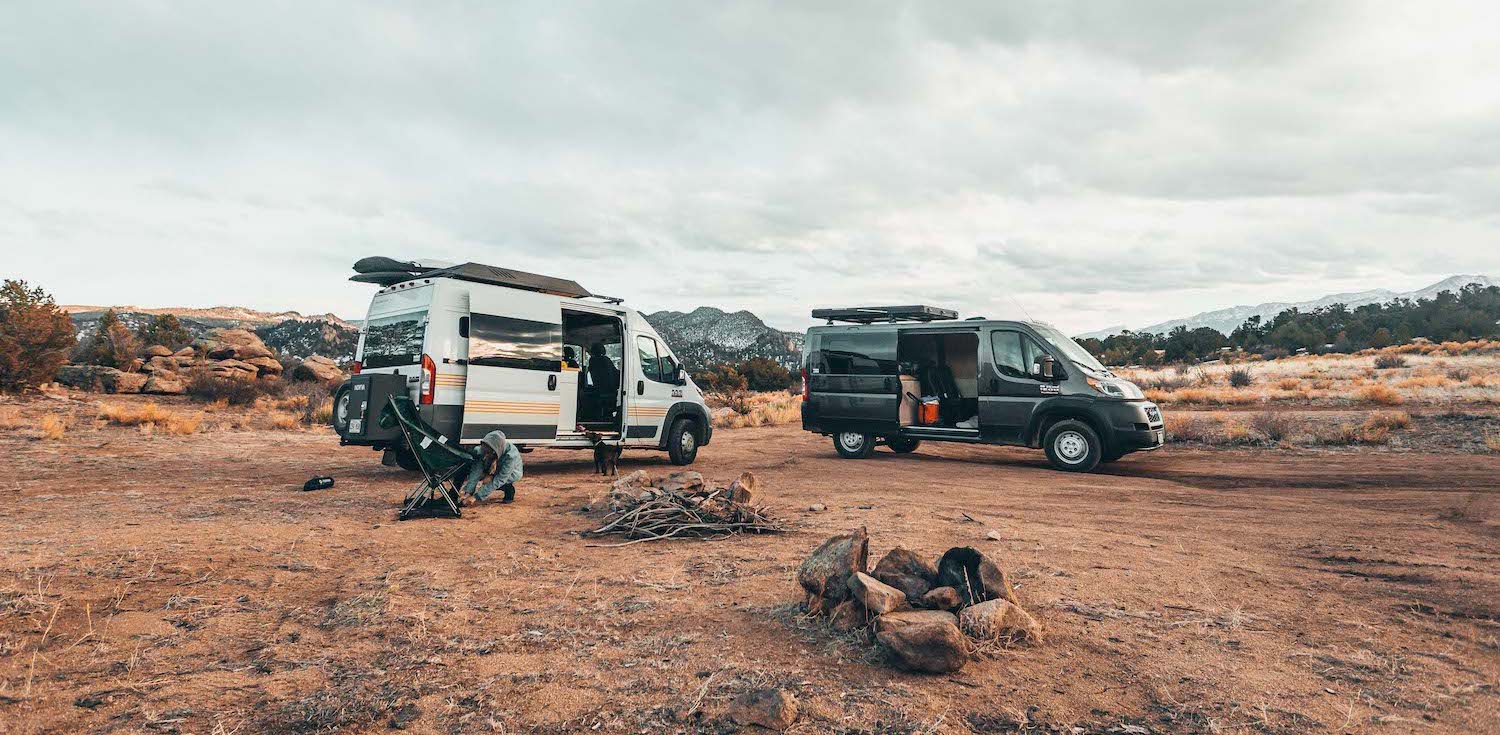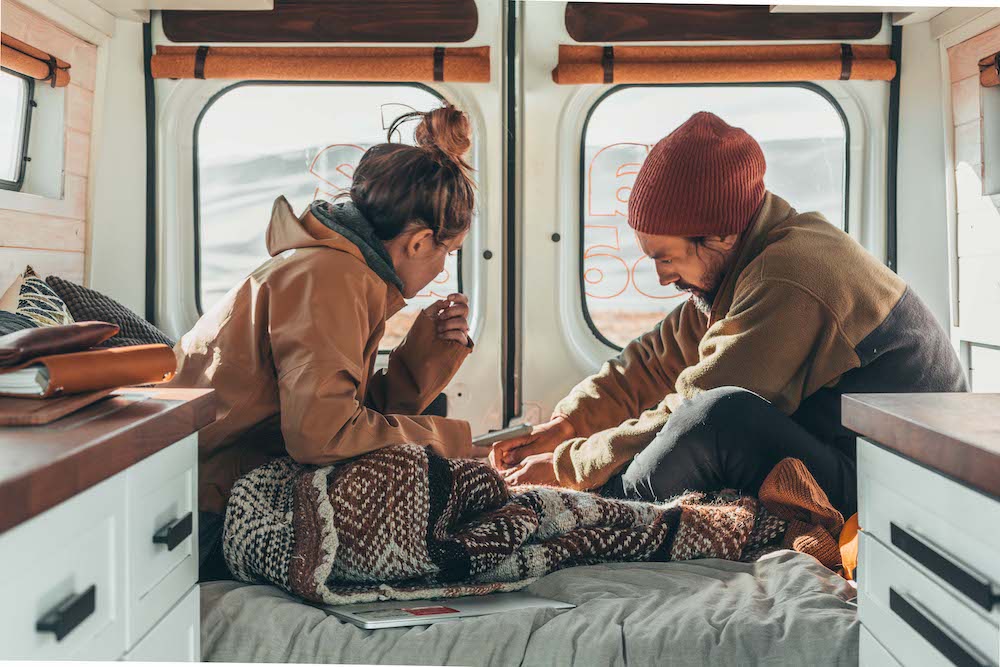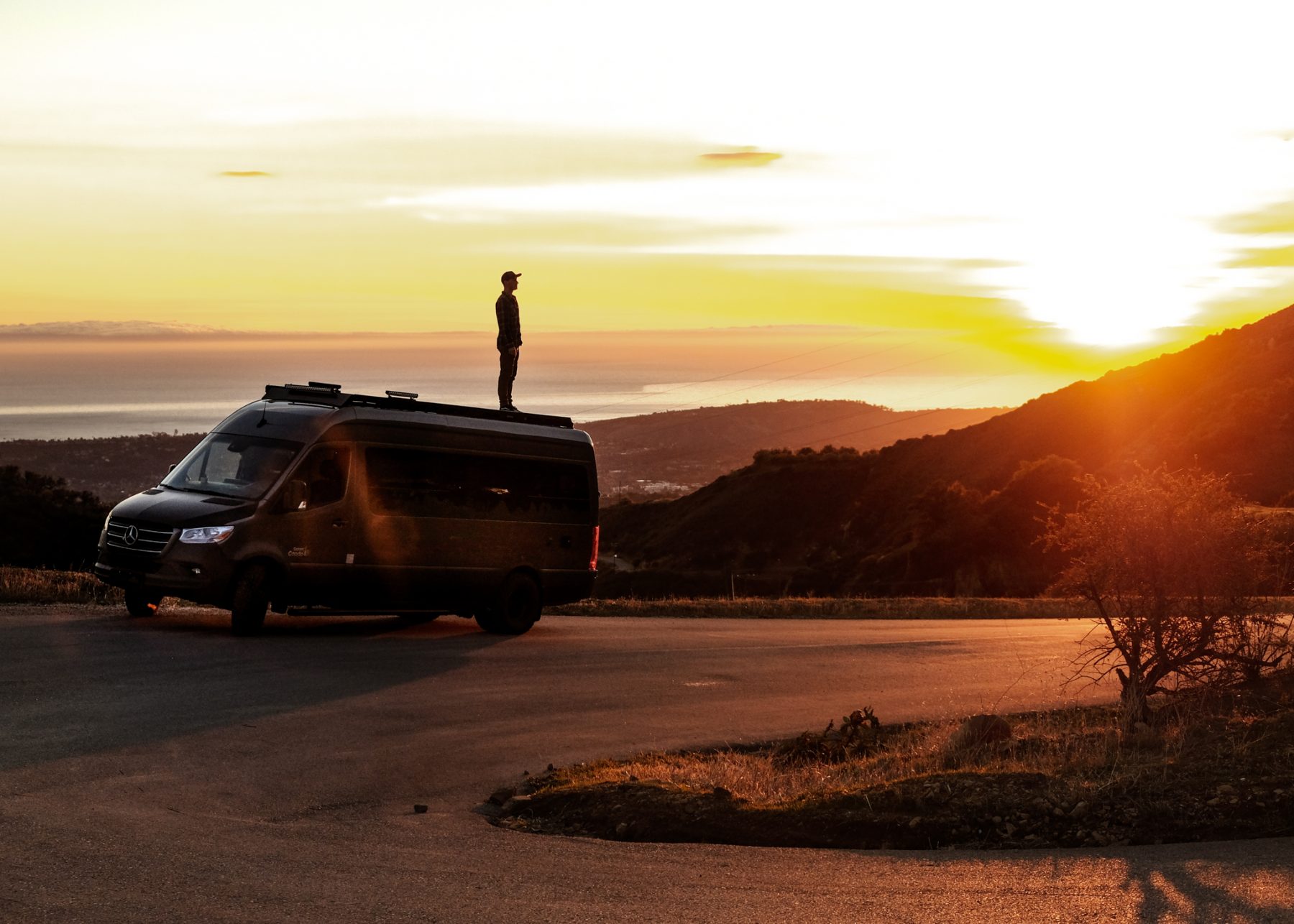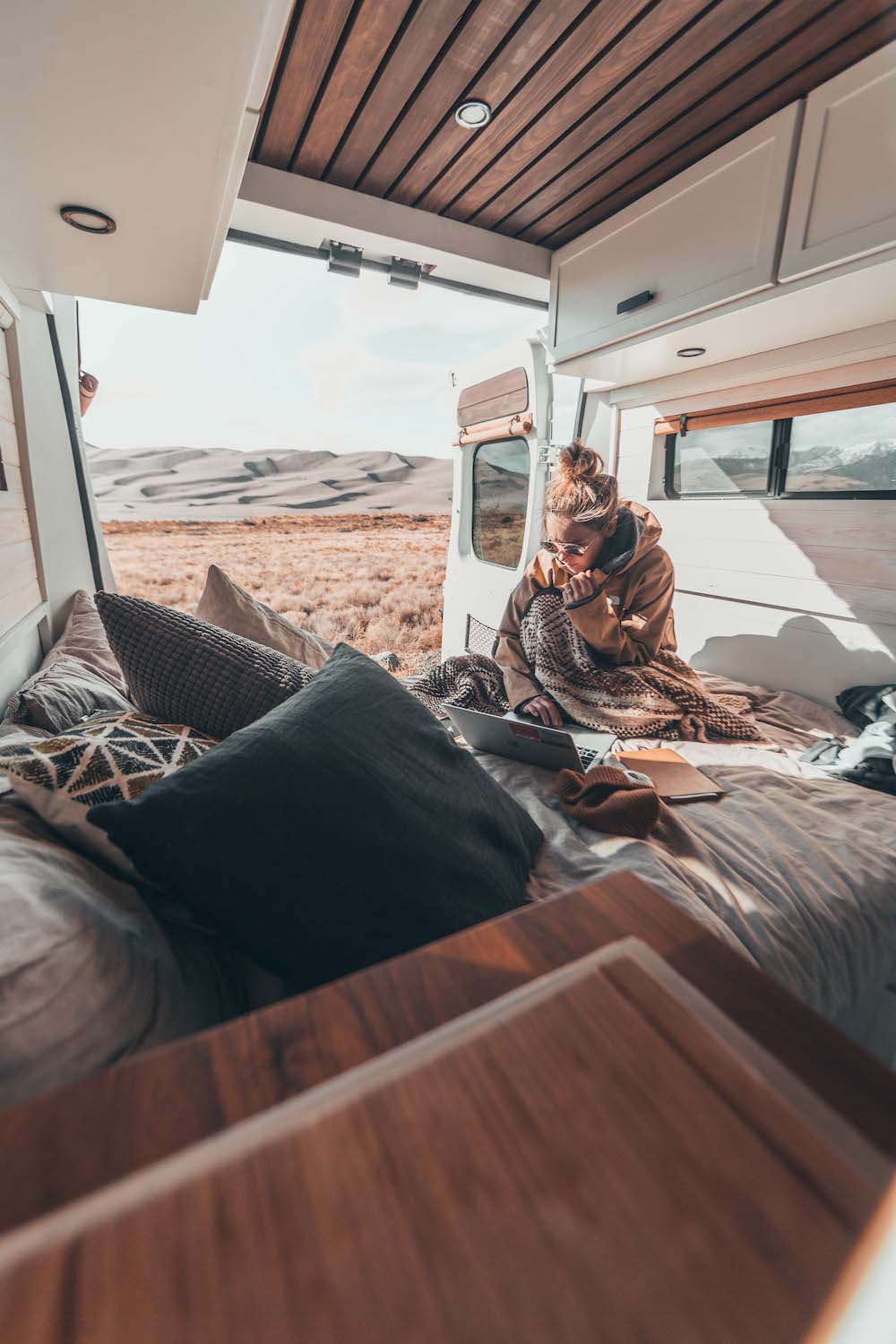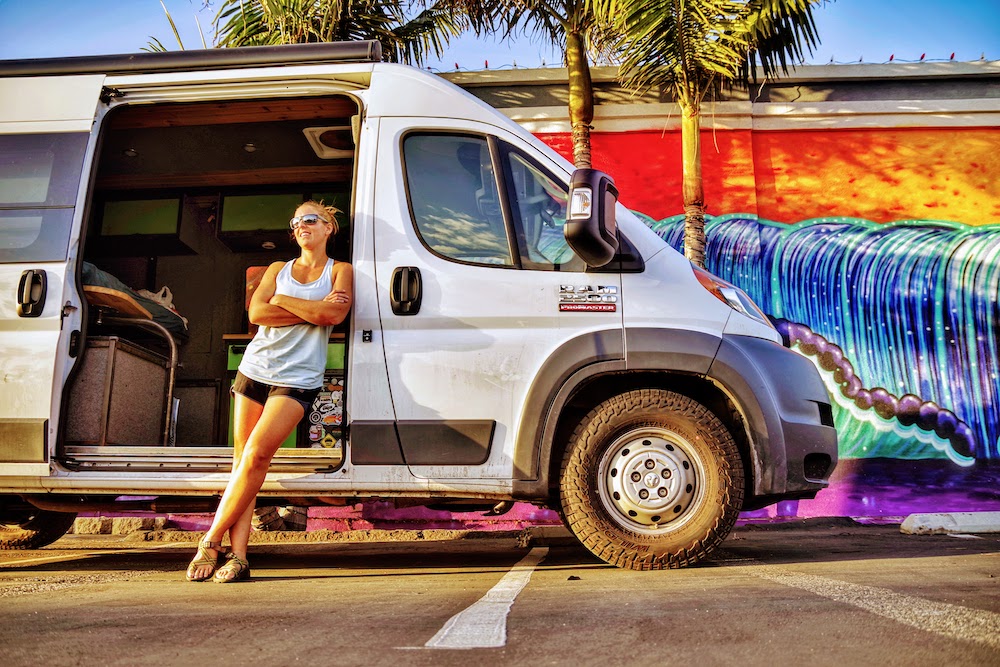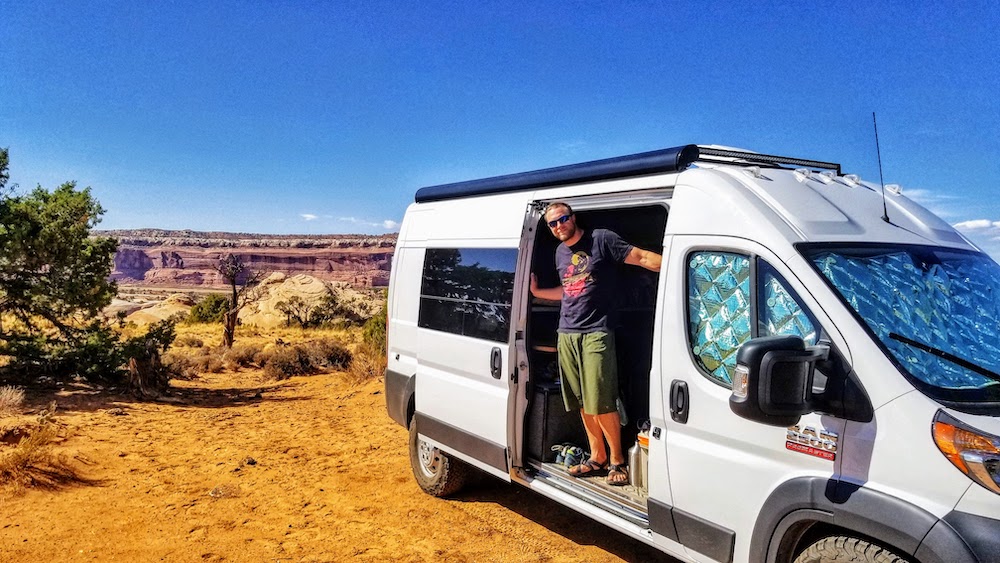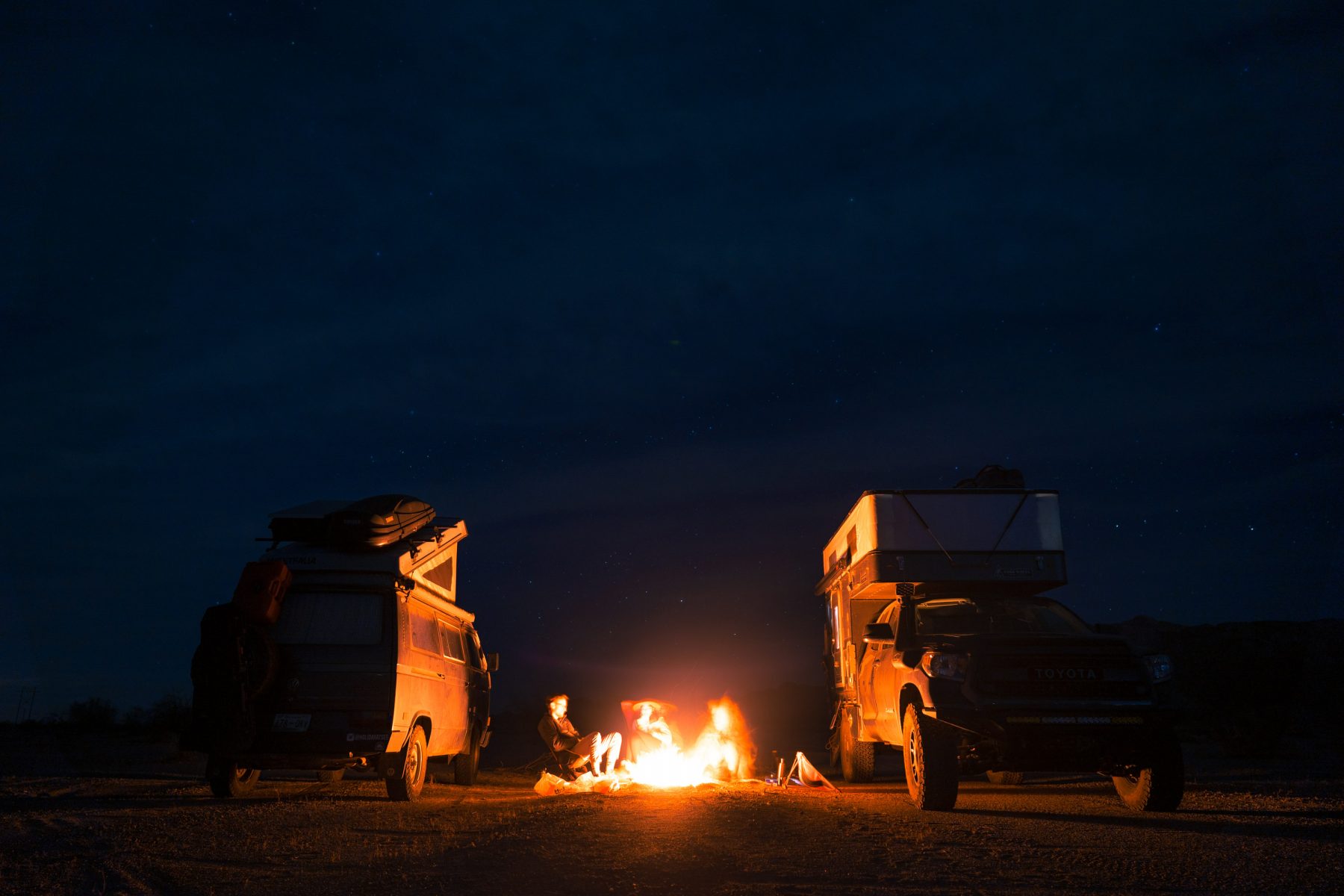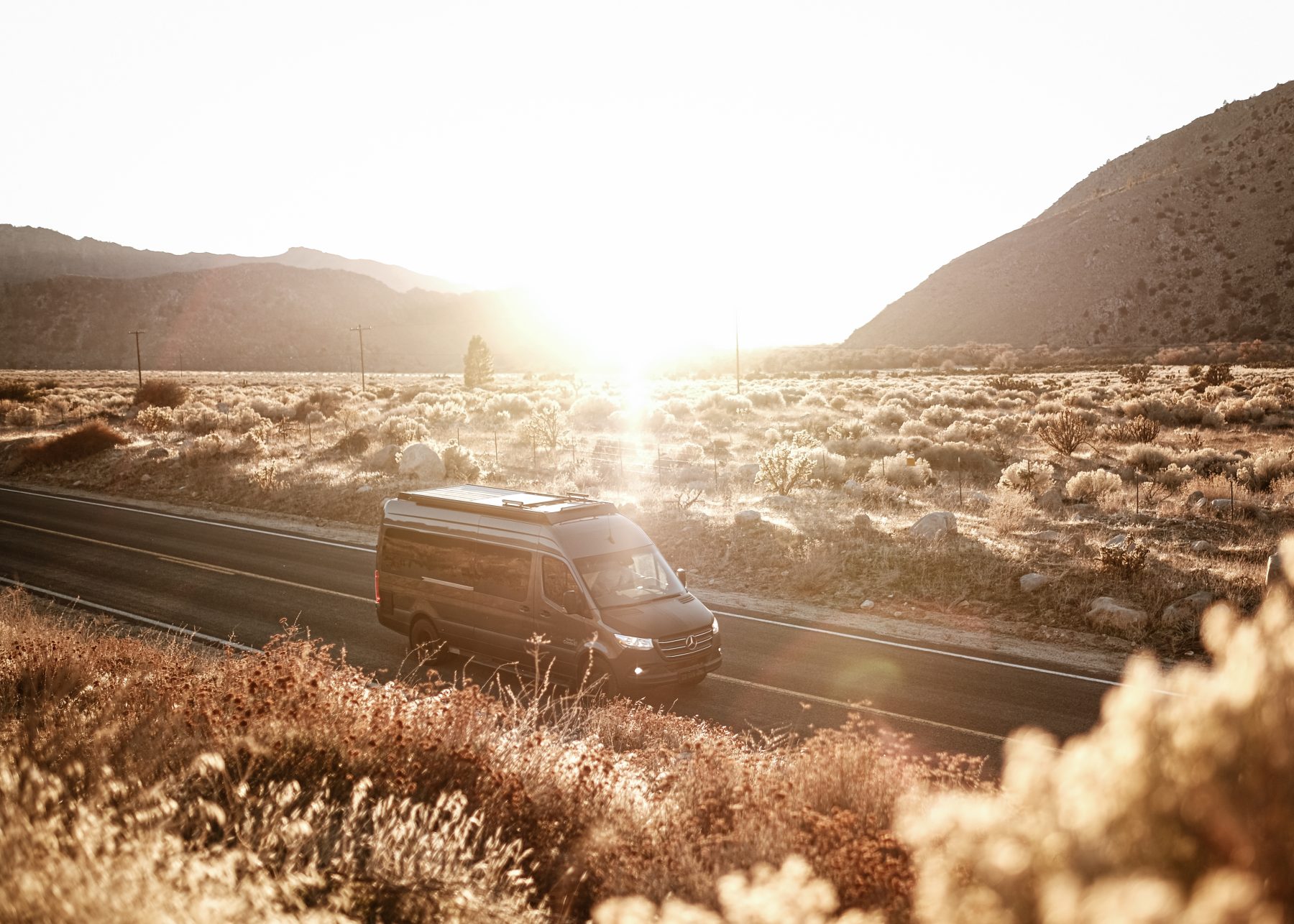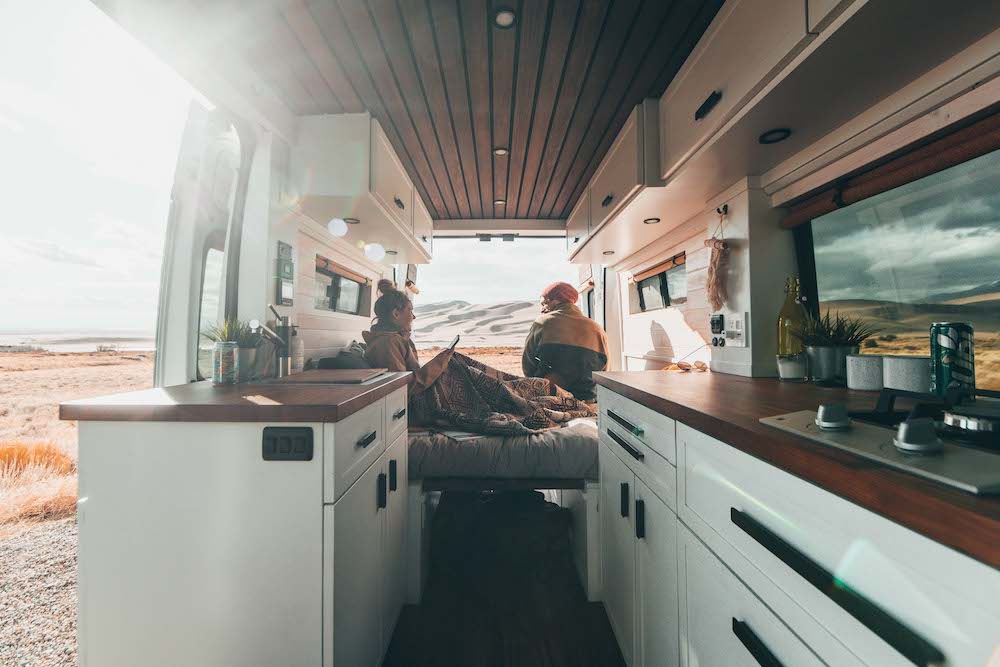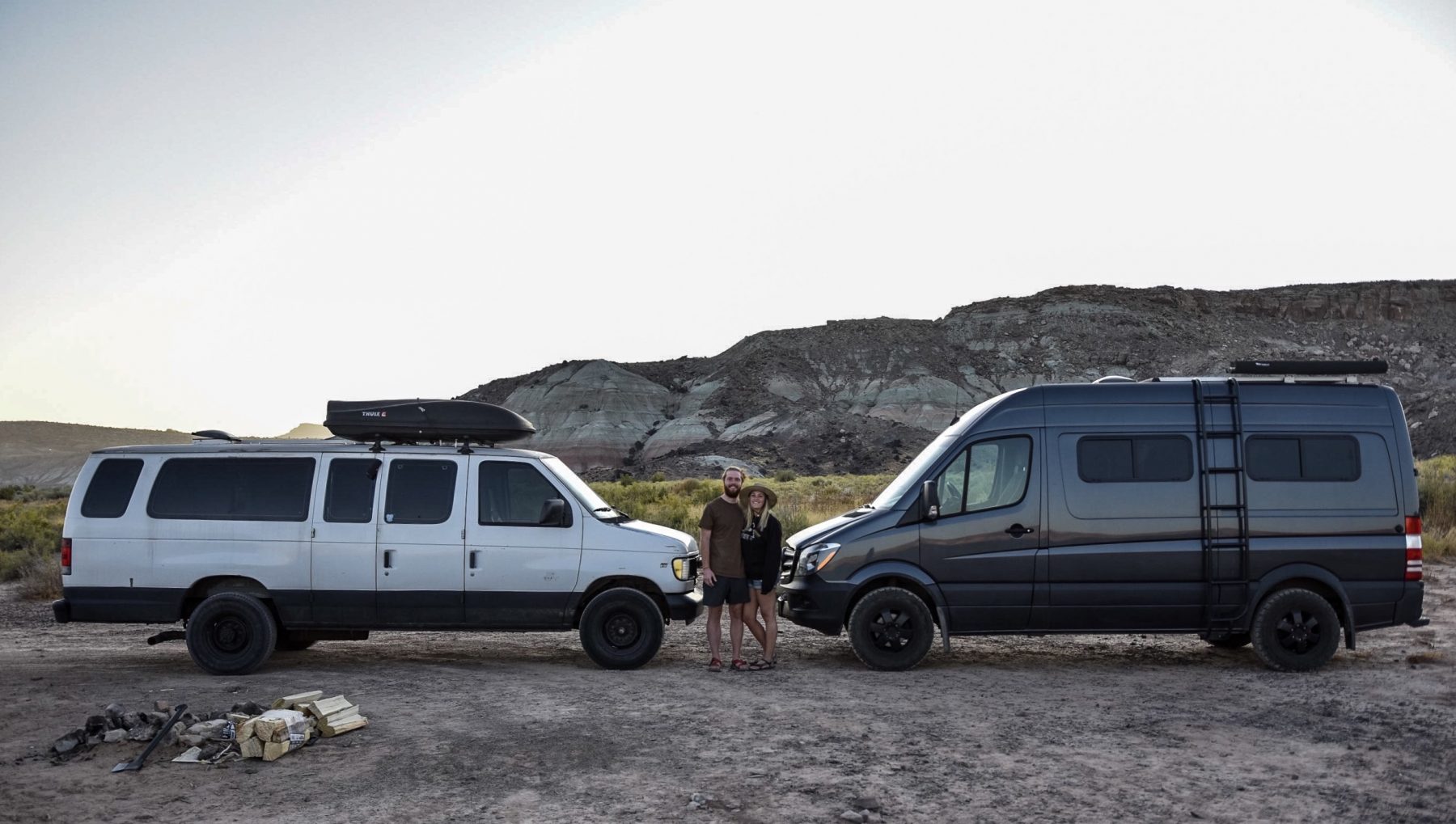A big topic of conversation in the world right now is how we should handle vanlife during COVID-19.
There is a massive amount of information floating around, with constant daily updates on the spread of the pandemic and how we, as vanlifers, should respond. As travelers who live for the ability to move around, it’s challenging for us to be told to stay put. But the big question is, what is the best way for us to handle vanlife during COVID-19? Some people say to go “home”, or stay with friends or family. Don’t have a place to park? Abbi Hearne put together an online spreadsheet for individuals to open up their houses/driveways for vanlifers to park at during the pandemic. Others say to socially isolate out in the middle of nowhere.
The most important thing is to slow down the spread of the virus and to take this as seriously as possible. So, what’s the best move? We’ve caught up with a few full-time travelers to figure out how they are personally handling vanlife during COVID-19, and to share any and all resources that we think may be valuable to you.
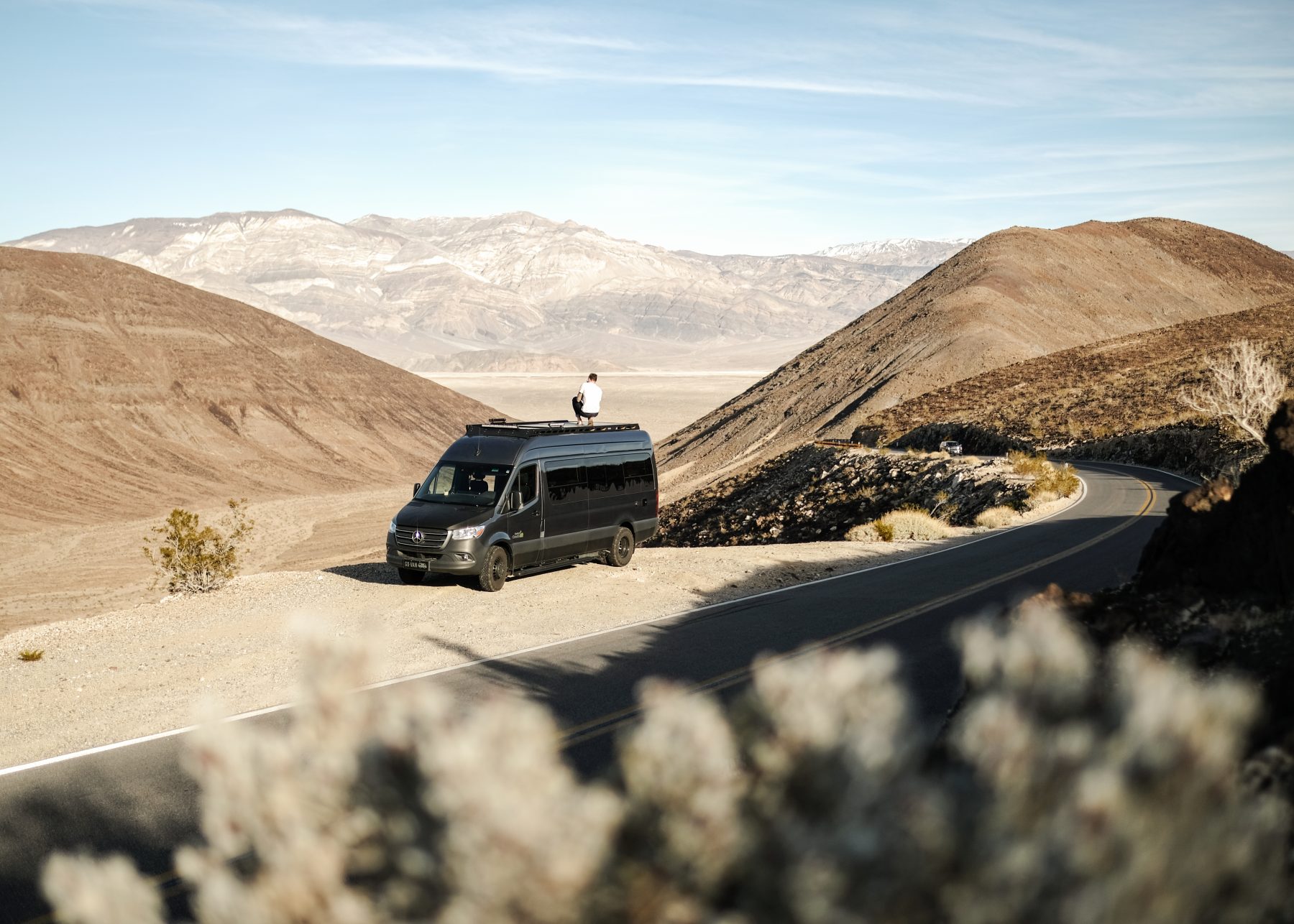
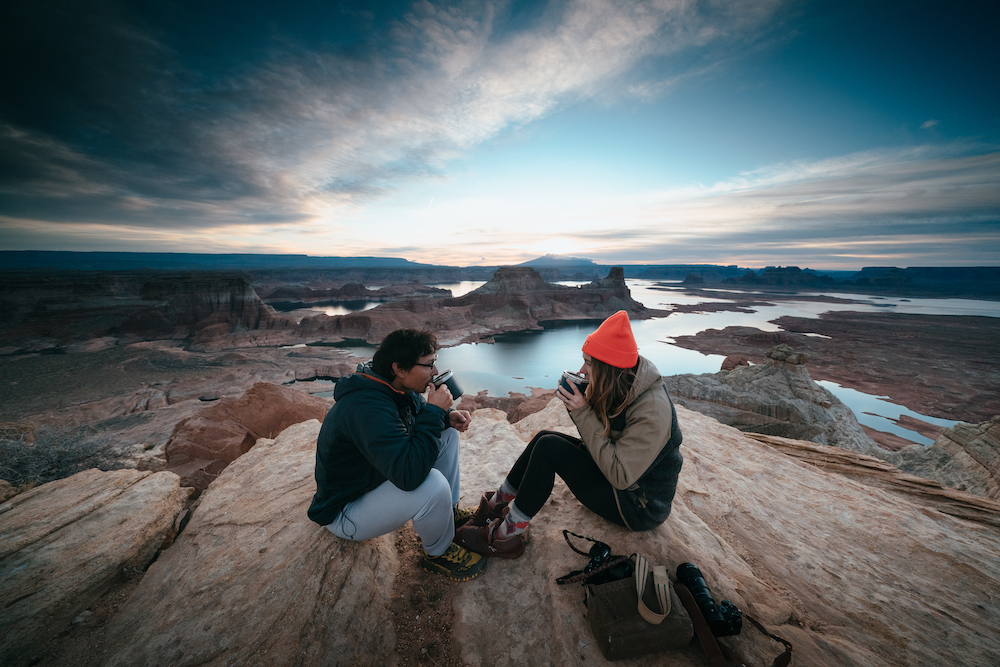
Photo credit: @gondirtin
VANLIFE SAGAS:
- We called our health insurance and made sure we were both still covered. Since we had left Canada in February, well before the massive outbreak of Covid-19 in North America, we are still covered by our insurance.
- We called the Canadian Embassy and verified what our resources were in the event of contamination or if we needed to go back home.
After a bit of hindsight and a lot of reflection, and as we remain covered by our health insurance, Dom and I decided to continue our journey but to modify certain habits:
- Avoid big cities and spend most of our time in isolated areas
- Stay in dispersed campgrounds (BLMs) and avoid regulated RV Parks
- Stock up on water and food as much as possible and only go grocery shopping when we’re out
- Regularly keep up to date with what’s going on back home (daily conversations with our families and we keep up to date with policies in place in Canada)
DRIFTER JOURNEY:
For us, the biggest benefit of vanlife is to enjoy the ultimate freedom of traveling the open road. We quit our jobs and sold our house in order to shed the obligations and structure of a traditional lifestyle. Although we have been stationary and working for the winter in Southern California, it’s by choice. It’s a whole different feeling to be told you can’t leave. Our initial reaction to a full quarantine was that we were trapped. We felt that we were the exception to the rule and that we could still leave if we wanted because we live in a van.
But the reality is that we have a responsibility to limit our travel just as much as anyone else. We will remain in Southern California for the time being. Our cousin has a spot on the side of his house that we are parked in, enabling us to limit our travel and not worry about a place to sleep. Since our jobs are gone, we won’t make as much money this season as we’d hoped. Thankfully, we have some extra cash saved up, and will still be able to travel over the summer as planned.
Similar to many of you, we experienced stages of fear as we processed society’s initial reaction to the Covid-19 event. Since we didn’t need anything, we intentionally waited to go to the store for food. We are critical thinkers and require a lot of information from credible sources like the World Health Organization and the Center for Disease Control before we make decisions. We’ve read a lot about pandemic psychology and don’t want to perpetuate pandemic panic. After taking the time to understand why fear was playing such a dynamic part in people’s decision making, it became clear to us how to proceed.
Our biggest source of stress is financial, as we have money invested in the stock market and talks of a recession weigh heavily on our minds. We keep an eye on the financial stimulus announcements, temporary unemployment programs, and cross our fingers that the market doesn’t crash too hard. As of now, we are staying positive by spending time outdoors, getting exercise, and enjoying the sunshine. Despite the quarantine, our routine remains pretty similar to what it was before, without the whole job part. At present, beaches and state parks remain open, allowing us to continue surfing every day. We have a few extra days of food than normal, but we have not stockpiled non-perishables.
It feels more important to cultivate a healthy mentality and a good attitude. Some days, that’s easier said than done. I’ve noticed moments where fear creeps into my thoughts, making my stomach drop. We’ve had more than a few sleepless nights. We try to be mindful of our emotions, processing them with a few deep breaths. Several meditation apps are offering free memberships or free premium features during this time to help people cope. Frequently reaching out to friends and family for a quick chat has lifted our spirits more than anything else. Supporting each other with positivity, encouragement, and love will be the way to inspire people and restore our communities.
In the end, we will be stronger because of this.
BOUND FOR NOWHERE:
Strange times we’re living in. COVID-19 has effected everyone from every walk of life. Over the last few weeks when things were starting to look more serious here in the US, we thought that our mobile lifestyle actually set us up well to weather the storm. Social distancing is inherently built into the way we travel, and thus it’s not uncommon to be away from civilization of any kind for days at a time. However, over the last week, we came to realize just how vulnerable we are in the wake of a worldwide pandemic.
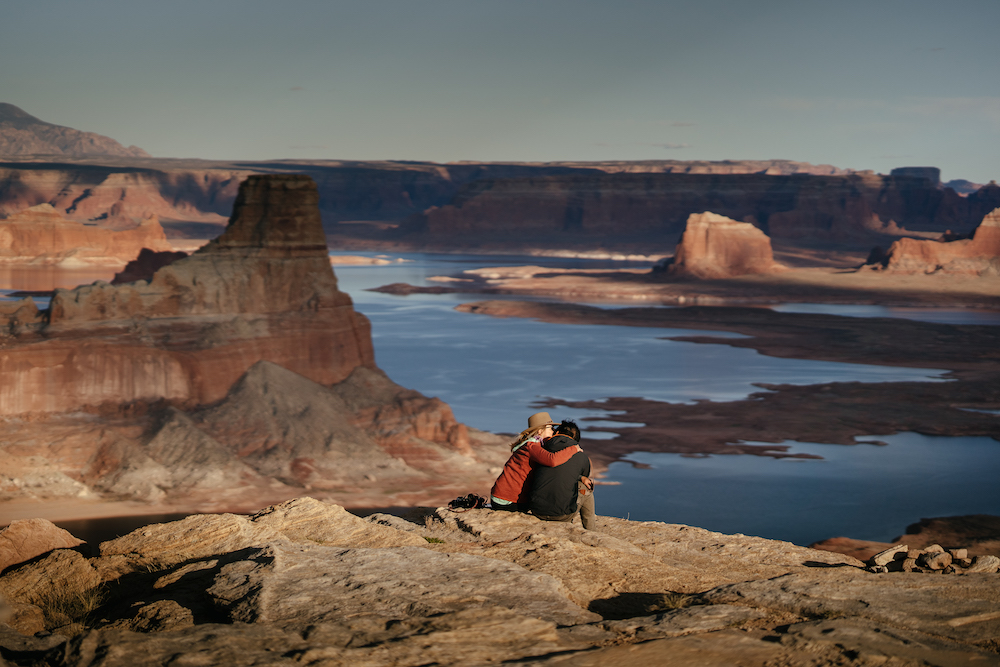
Photo credit: @gondirtin
The source of our vulnerability is we can only “stock up” on so many supplies. We have the ability to carry 20 gallons of water, 20 lbs of propane, and 3 days worth of perishable food that requires cold storage. Additionally, we only have so much room to carry a large back stock of non-perishable food. That reality really set in for us when we started to show up at the grocery store and see so many of the things we needed to be sold out.
Ultimately, we decided that it was our responsibility to come off the road until this all blows over.
We feel that we needed to remove ourselves from the equation to prevent ourselves from getting sick and others that we’d have to come into contact with to get the resources that we would inevitably run out of. Thankfully, we have amazing friends, Karissa and Linhburgh (@gondirtin), who offered us their backyard in Long Beach, CA. We took them up on the offer.
The effects of COVID-19 run far deeper than just access to food and water. As freelance designers and content creators, all of the work that we had lined up has evaporated over the last week. Thankfully, Adobe (the software we use for our design work, photo, and video editing) is offering 2 months for free. If you use any Adobe products, here is the link to how you can get the offer.
We will likely have to live off of our YouTube ad revenue until things return to normal, and people go back to normal.
If it’s at all possible, we recommend that you come off the road. Try to find a place where you can have regular access to water and power with limited contact with people. It’s all of our responsibility to think of the health and well being of every person we come into contact with. Take care of yourselves out there and be well while handling vanlife during COVID-19! We’re all in this together.
CONCLUSION:
There are various options when discussing how to handle vanlife during COVID-19. We recently took a survey with our audience, asking users whether they are socially isolating in a house or out in nature. The results? 28% are isolating in a household somewhere, while 72% chose to stock up and go out into nature to wait everything out. The important thing is to learn as much as you possibly can, evaluate your personal situation, and figure out what is best for you. For many out there, heading to a friend or family member’s house is not an option, or doesn’t make sense financially. And that’s okay! There are different options for different situations, where you can be responsible, while also doing what’s best for you.
ONLINE RESOURCES:
Looking for sources of information, helpful links for handling vanlife during COVID-19, resources to help you through low employment, and more? Check out these various resources and links we’ve put together for you.
A few links to regularly check for virus updates:
- Government of Canada – Travel
- World Health Organization – Updates on Covid-19
- Medavie – Blue Cross
- CBC
- Financial Stimulus Announcements
- Who Link: Rolling Updates on Coronavirus
- CDC
- Temporary Unemployment Programs
Facebook groups for location-based information:
Other resources:
- Women on the Road Informational Podcast Episode
- Institutions open to Virtual Visitors: Museums, Art Galleries, and more
- Adobe Cloud Free for 2 Months
- Online spreadsheet for Vanlifers to find a safe place to park during Pandemic
- Practice virtual yoga with donation-based payments
- Why you need to stay away from Moab
- TuGo travel insurance FAQ
- Good Vibe Collective’s Social Distancing Support for Nomads
- Vanlife Diaries COVID-19 Resources
- Airbnb allowing changes to reservations
- Managing Mental Health during a Pandemic
- Free RV Housing for Healthcare Workers during COVID-19
- Delta allowing changeable flights for March and April
- How to help small businesses during this time
- Free Memberships
If you have any information or resources you would like added to this post, please send me an email at vanlife@solutionsangulaires.com
Most importantly, please stay healthy and be sure to take care of yourself during this time! Sending good vibes out to all of you.



